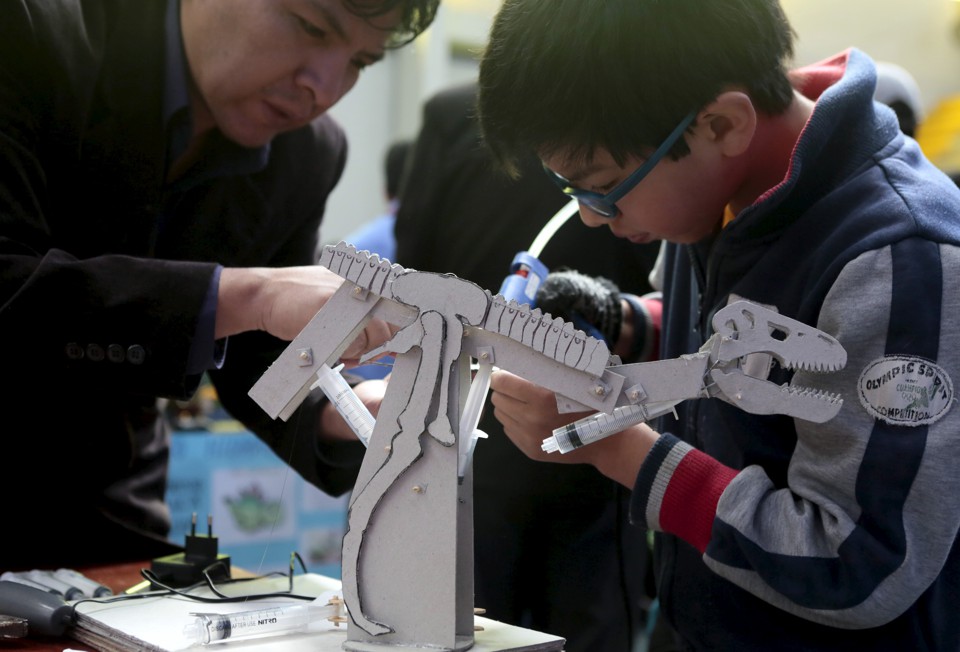07.29.17Educators: It is VERY Important to Distinguish Correlation from Causation

Close Your Eyes and Try to Feel More Curious
There’s one of those articles again today. It’s in the Atlantic. Again. It observes that, ‘Curiosity is under-emphasized in the classroom, but research shows that it is one of the strongest markers of academic success.’ “Marker’ is a tricky word there. It sounds quasi-medical. It kind of makes you think that curiosity leads to success. But that’s not what the research shows. It shows a correlation not a causation. This sounds like an arcane difference. It isn’t. Misunderstanding it is one of the of the biggest problems with education research today. Possibly the biggest problem.
Before anyone freaks out, let me just say that I am not arguing against curiosity here. I love curiosity. It’s great. It’s surely an outcome of good schooling. It might develop in synergy with learning. You learn something. It makes you curious to learn more. One reinforces the other. But it would be very very hasty and possibly detrimental to conclude that curiosity causes achievement. And this article suggests that.
Here’s where articles like this go wrong: If curiosity is ‘associated with” academic success… if it is, as the Atlantic confusingly puts it, “a marker,” it suggests that we should set out to be teaching curiosity. It causes achievement. Let’s all socialize it every day. Let’s all embed it it in our lessons. Let’s ‘teach’ curiosity.
But the data does not say that curiosity causes academic success. It is just as likely-well, more likely honestly–that it is the result of academic success, or that it occurs as knowledge grows. In other words it is at least as plausible that it is an outcome of increased knowledge and understanding as opposed to a cause of it. This of course would explain why successful students are so curious. Their knowledge and understanding help them see fascinating details in everything around them.
So if we rushed off and reinforced “curiosity” directly–spent time asking students to list or explore things they were curious about instead of learning more knowledge in science and history and the arts, say, we might just as well cause a negative outcome. We could spend less time on what causes curiosity by spending time urging our students to be more curious. What causes success and what occurs with it are not the same. Successful students are more likely to have parents who drive fancy cars, too. This is because their wealthy parents will do everything on God’s green earth to protect their privilege. Fancy cars do not cause achievement. Correlation. Not cause.
And in fact this confusion happens ALL THE TIME in schools. Reading skills are a good example. “Good readers,” we are told, “picture what they are reading in their head.” Even if this could be demonstrated empirically–I’m not sure it could be–it might be that everybody pictures what they are reading but the pictures are more vibrant when you have enough knowledge vocabulary and fluency sufficient to really comprehend the text. The picture is more likely outcome than the cause. I mean, good readers–readers who LOVE reading and read the best books ALL THE TIME– are also more likely to read in a comfortable chair and relax with a glass of wine. Does this mean we should be outfitting our classrooms with barca-loungers and cabernet? Probably not. But walk into any classroom in the US and you’re just as likely to see a teacher stopping her kids to remind them to “picture the story in your heads.” Honestly it’s pretty clear that they’d be better off teaching vocabulary and letting the pictures take care of themselves. But misunderstanding causation blinds us to this fact.
Correlation isn’t cause. Not by a long shot. It’s too bad that more folks aren’t curious about that.

Doug,
Thanks for this post. I haven’t read the Atlantic article yet, but plan to. Causation is the result of an argument that explains observations. In this case, I find the argument that knowledge (or academic achievement) results in curiosity far more compelling than vice versa.
Thanks, Joe
thanks, Joe. tbf the atlantic article doesn’t explicitly say we should “teach curiosity” but it’s often what happens with this kind of article.
Hi Doug–
I agree that these types of articles often are guilty of assuming causation, but I’m not sure this one does that. The piece is saying that curiosity is a strength (duh) and the main take away is:
“Stimulating classroom activities are those that offer novelty, surprise, and complexity, allowing greater autonomy and student choice; they also encourage students to ask questions, question assumptions, and achieve mastery through revision rather than judgment-day-style testing.”
Do you disagree with that?
Yes i agree. it’s fair to observe that i am making some assumptions about what people will “do” with the article and conclude from it. But i also think its language in describing the connection is a bit reckless and feeds into potential mis-applicaitons. Thanks for your comment, Eric!
Well put. This argument is routinely rehearsed in discussions about education but not often so clearly nor so relevantly to routine judgements made by teachers (and more to the point, writers about education). I have lost patience for example with the Jo Boaler “every time you make a mistake synapses in your brain fire” (implying, of course, that lessons designed to cause students to overreach and/or fall into error somehow make kids smarter or insidiously and counterintuitively develop mental power). I agree that there is a correlation. I’m sure 100% of people making mistakes also have firing synapses. That would be a correlation of a sort. Whenever I hear this I like to point out that there’s a phrase for when your synapses AREN’T firing. It’s called being dead.